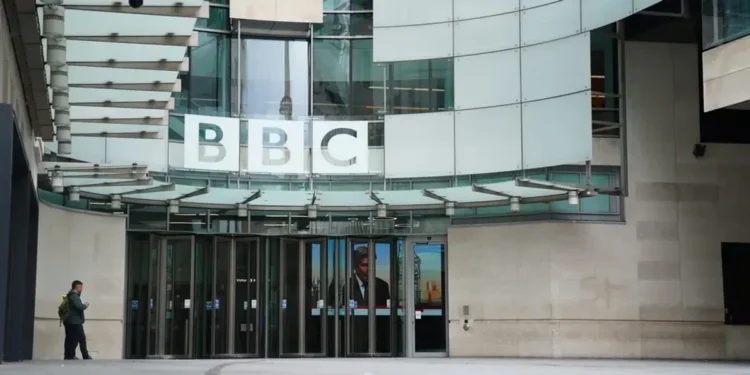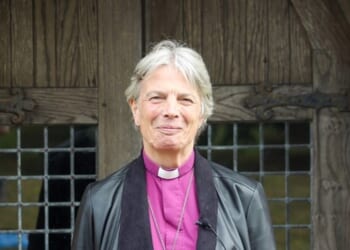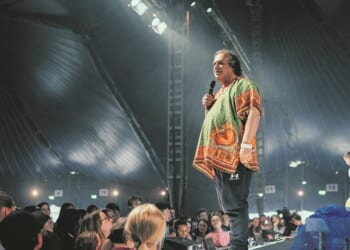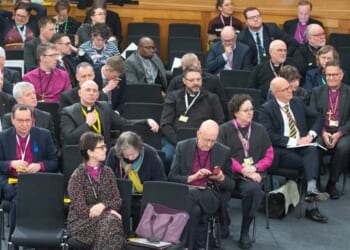A group representing 650 families has formally asked Ofcom to investigate the BBC over what they describe as a decade of biased programming that has harmed vulnerable children.
The Bayswater Support Group (BSG), which supports parents of children who identify as transgender, claimed the corporation has broadcast a “constant drip-feed of one-sided pro-trans programmes” without proper balance.
In their complaint to the broadcasting regulator, the group alleged the BBC failed in its duties of impartiality and safeguarding by promoting transgender lifestyles to young people already vulnerable due to their age and mental health needs.
The parents said the BBC even appeared to encourage children towards irreversible medical transitions.
The group’s solicitors, Conrathe Gardner, wrote to Ofcom stating they’ve faced “consistent resistance” from the BBC when trying to encourage more balanced coverage that includes the lived experiences of parents.
They claimed senior managers, including Jonathan Munro, now head of news after Deborah Turness’ resignation, dismissed their concerns when they complained about coverage in December 2020.
The letter highlighted the BBC’s alleged failure to address safeguarding worries about reporting that links gender questioning with suicide and self-harm.
Since forming in 2019, the group said it tried engaging with the corporation but found it unwilling to amend stories promoting what they call a “one-sided perspective on trans issues.”

A group representing 650 families has formally asked Ofcom to investigate the BBC
|
PAThe group highlighted several specific programmes in their complaint, including the children’s cartoon Hey Duggee, which featured a raccoon character using “they” pronouns, though the BBC denied the character was meant to be non-binary.
They also cited a Doctors episode, where a mother claimed she knew her daughter was transgender because at six years old she played with mud and had a boy as a best friend.
On the show, the father was shown in negative light for not accepting his daughter’s desire to be a male.
Parents also complained about a Radio 5 programme describing children as “small adults trapped in bodies” and a Casualty episode featuring a transgender medic saying before surgery: “I’m just happy that I’ll look like the person I feel on the inside.”
The BBC is currently facing a wider bias crisis following a leaked 8,000-word memo from whistleblower Michael Prescott, former advisor to the BBC’s Editorial Guidelines and Standards Board, alleging “effective censorship” on transgender reporting.

The group claimed senior managers, including Jonathan Munro (pictured), dismissed their concerns when they complained about coverage in December 2020
|
PA
Paul Conrathe, the group’s solicitor who previously influenced the NHS ban on puberty blockers for under-18s, said many BBC programmes breach Ofcom’s Broadcasting Code requiring impartiality, accuracy and protection of minors.
A group spokesman said: “For the past decade, the constant stream of propaganda about gender and trans activism the BBC has transmitted has played a significant role in creating a dangerous culture for children.
“The end result of this is a generation of teens and young adults who have come to severe harm, frequently self-diagnosed and self-medicated, estranged from families.”
They claimed the BBC’s influence extends beyond children to schools, policymakers and the public.
Ofcom confirmed it received the letter and is considering the complaint.
The BBC defended its coverage, with a spokesman saying: “BBC News has taken a number of actions relating to our reporting of sex and gender including updating the news style guide and sharing new guidance, making our social affairs editor responsible for this coverage.”
They added that where concerns about particular stories arose, they were addressed and continue reviewing coverage to reflect developments like the recent Supreme Court ruling.
Richard Burgess, director of news content, recently told staff: “Have we got everything right on it? No, I don’t think any of us would say that, but I am also pleased with the progress we have made.”

















